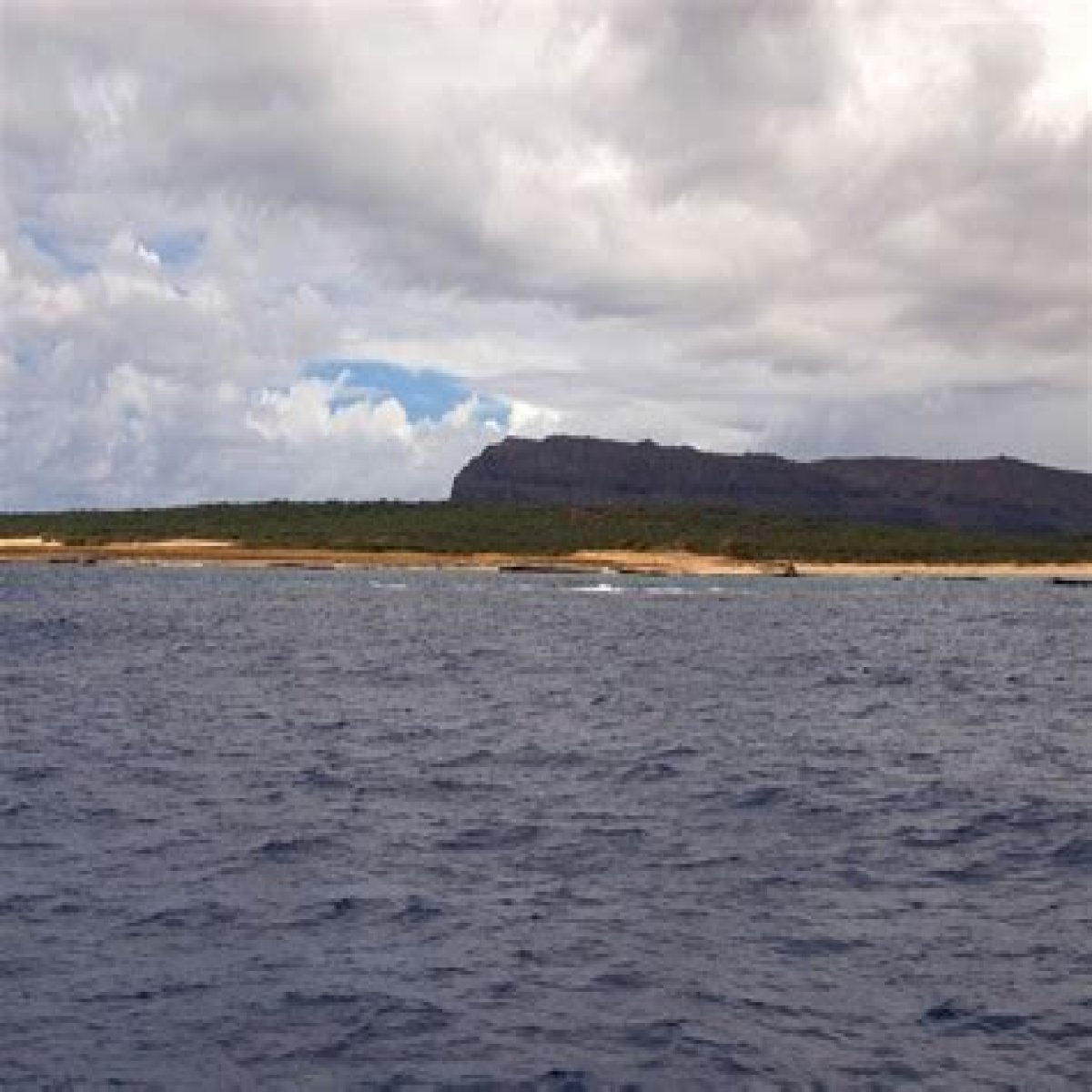In 1969, the Milwaukee Journal called Niihau a “Puritan paradise,” because of the religious culture impressed upon the Niihauans by the Robinsons -- a family of “strict Scots Presbyterians,” according to the Journal -- and the missionaries that came to Niihau centuries before it was purchased.
“All those rules came from the old timers, so we just take care of that,” Wehi Kaaumoana, a 34-year-old Niihauan, told The Huffington Post.
The younger people in the village are also expected to take care of and provide for the elders.
"We live off the land. That's all we have," Kaaumoana said. Although Niihauans can hop on a barge owned by the Robinsons to go grocery shopping on the island of Kauai, they rely heavily on fishing and hunting to feed the village.
But "the old folks over there, they can't go beach 'cause they growing old," he added. "When we go out and fish and hunt and give them food like that, they happy. We take care of our elderlies. Elderlies are the main thing in life."
To pass the time, Niihauans go to the beach or watch pre-downloaded movies on iPads, but, like any other small town, people get bored. Kaaumoana, for example, moved off the island in his mid-20s to find work on Kauai.
The island's small population fluctuates as Niihauans travel or move off the island. The Niihau Cultural Heritage Foundation says that number can drop to below 30 during the summer months as people travel for pleasure or work.
"People leave the island all the time," Peter T. Young, Hawaii's former Department of Land and Natural Resources director and Hawaii historian, told HuffPost.
"[Niihau] is isolated for the rest of us, but it's not an isolated island for them," Young added. "They don't look any different, they don't act any different," they just "have the opportunity to live in a place that the rest of us have a very limited opportunity to see."
The perceived mystery of life on the "Forbidden Island" has generated speculation over the years, but Bruce Robinson told ABC News that, "While it is an ancient type of culture, they're a very modern type of people."
"There are stories that have been generated of captives living out here," Robinson added. "People who can't get out to the cities. That is totally false. In fact, every person on Niihau has been to the mainland. They know all about it. It's a well-traveled population."
Niihauans are fiercely protective of their island. In 2013, a group of residents discovered trespassers fishing on their shoreline; they used a digital camera to record the intruders, and presented the footage to lawmakers, asking for help with protecting their resources.
There are, however, a few sanctioned ways to see Niihau.
Kauai tour boats offer a tiny morsel of Niihau's pristine waters by offering day-long snorkel and dive trips to the Lehua Crater, a volcanic cone that sits north of Niihau island.
If you want to get on shore, the Robinsons offer extremely guided tours and hunting safaris, ferrying curious tourists on their private helicopter from Kauai to remote parts of Niihau. The half-day guided tour takes guests on an aerial tour, then to a remote beach for lunch and snorkeling.
Day-long hunting trips can cost more than $1,700 a person, but give slightly more access to the island.
The Robinsons' tours help support Niihau, but purposely avoid contact with the locals and keep the island's village out of sight, in order to protect the Niihauans' privacy.
For Bruce Robinson -- who's married to a Niihauan woman -- maintaining Niihau's unique culture and way of life is a priority.
On Niihau, he told lawmakers in 2013, there's "a feeling of inner peace and renewal that we don't understand in the outside world. The Western culture has lost it and the rest of the islands have lost it. The only place it's left is on Ni'ihau."
Kaaumoana, who has become used to modern life on Kauai, would agree.
"Life is good over there," he told HuffPost. "Everything you need is there ... You can go to the beach and you’ll have the only footprints on the beach. It’s beautiful there."
